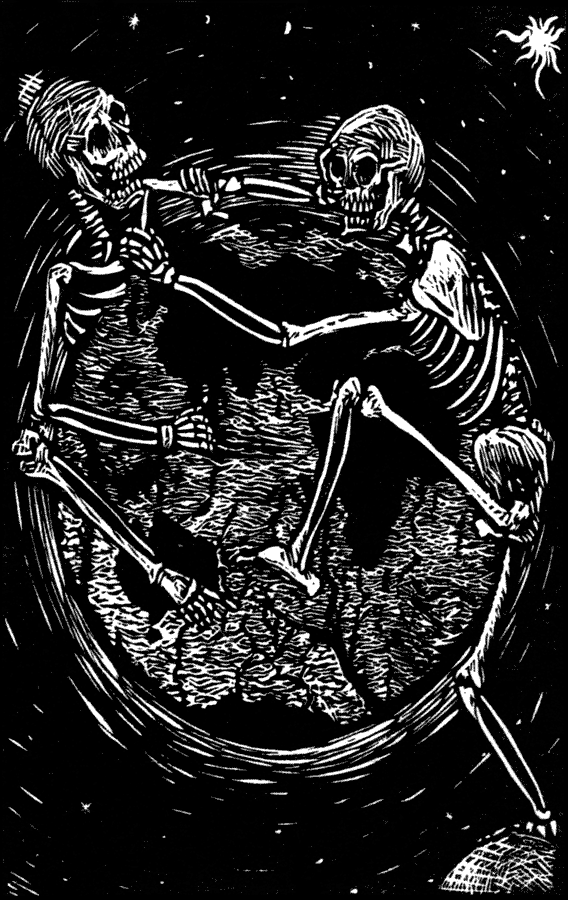
International SQUALL
Caught In The Croatian Crossfire
Squall 9, Jan/Feb 1995, pg. 35.
The War in Croatia is raising fundamental questions about what happens to property, and those who live in it, when territory changes hands.
For the past two years human rights activists in Croatia have been trying to prevent the brutal eviction of people who are leaseholders of flats which, prior to the war, belonged to the Yugoslav National Army (YNA).
Before independence the YNA owned about 38,000 flats in Croatia. Under socialism apartment rights were often issued to tenants, these rights were analogous to ownership as they were inheritable and exchangeable. After the army’s withdrawal the residents of these flats remained. Many of them were pensioners, war veterans, medical staff from military hospitals and other YNA employees. Their legal status is clear, they should retain full rights as leaseholders.
In July 1991 the Croatian government passed a decree which invalidated all transactions involving YNA-owned property and declared that these properties belonged to the Republic of Croatia and were “at the disposal of the Ministry of Defence”. This decision turned the residents into squatters overnight.
Evictions began in 1992 when the MOD claimed that the flats were needed for the Croatian military, war invalids and widows. Propagandist slurs against the occupants began, they have since been variously described as traitors and Serbian extremists.
The Croatian president Franjo Tudjman claimed that there were 6,000 Serbs in flats needed for Croatian war invalids. At a press conference in July 1994 he said: “You musn’t forget mostly these people who are evicted are people who are directly or indirectly involved in aggression against Croatia.”
However, evictions seem to have been carried out regardless of the ethnicity of occupants.
Paul Miller of Amnesty International told SQUALL that Serbs, Croats and people of mixed parentage have been evicted. Tudjman also claimed that evictions were only being carried out “on the basis of court decisions”. On the contrary, it is clear that many evictions have taken place unsupported by court orders. The government decree has been used to evict people all over Croatia in areas including Zagreb, Split, Pula, Osijek.
Since the evictions began Amnesty has received information concerning allegations of police brutality during evictions. Human rights activists’ demands, that a moratorium be placed on such evictions until the policy has been reviewed, have so far been ignored.
Many evictions have been resisted with occupants supported by friends, human rights activists, lawyers, journalists and occasionally a few members of the Croatian parliament. Dom (Home) - an organisation started by those directly affected by the evictions - has been campaigning along with the Anti-War Campaign in Croatia. Their actions have included a hunger strike outside the Croatian parliament.
Over 5,000 flats have been “reclaimed’ by the Croatian government. The Croatian Branch of the Balkan Peace Team (BPT) estimate that 15-20,000 people have been forced onto the streets in this manner over the past two years.
In Autumn 1994 the police in Zagreb took the decision to use force to carry out evictions. Police and/or soldiers have since used physical violence, intimidation and ethnic and gender-based slurs whilst carrying out evictions. Those refusing to leave have often been seriously beaten. Evicted families are often forced to stay with family and friends while Croatian soldiers turn up to take their belongings into storage (which they have to pay for themselves). Paul Miller noted that there are cases of possessions disappearing altogether after evictions. Social workers appear to offer orphanage places for children; this is the only help offered by the government.
In numerous cases the occupants hold the rights to the flat but the government refuses to respect their papers. One such family living in a tiny flat in Split, who had already been sharing their home with two refugees since 1992, were forced to live for 20 days with a soldier who, declaring that the flat was his, barged his way into their home with a tank of gasoline, a bomb, and the help of the military police. Due to a bureaucratic cock-up the soldier had been granted rights to the apartment by the Ministry of Defence before the appropriate office had decided it belonged to him and notified the family. This is not an isolated case. The Balkan Peace Team have reported several clashes between angry war veterans and confused tenants.
